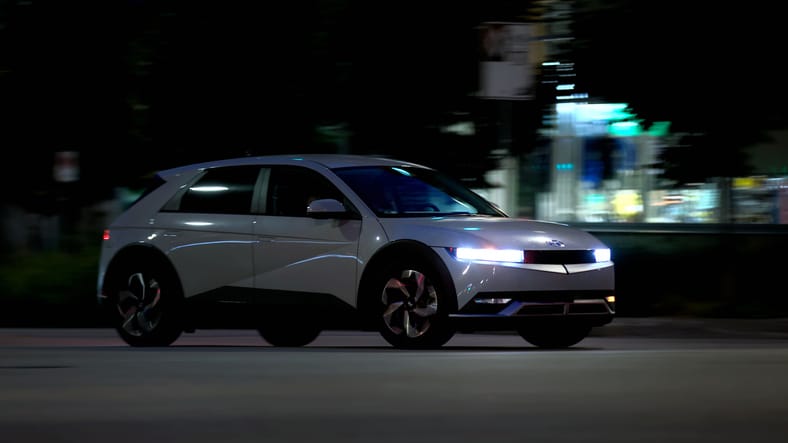Cruising on Fumes: A Look at the Most Fuel-Efficient Cars Ever Made

In today's world of rising gas prices and environmental concerns, fuel efficiency has become a top priority for car manufacturers and consumers alike. This quest for ever-better mileage has led to a fascinating evolution in automotive technology, with cars achieving feats once thought impossible. Let's delve into the history of fuel-efficient cars, explore the forerunners that paved the way, and examine the champions of efficiency reigning supreme today.
Humble Beginnings: The Quest for Efficiency Takes Root
The story of fuel-efficient cars starts surprisingly early. Even in the early 1900s, with gasoline readily available and seemingly cheap, carmakers were tinkering with ways to improve mileage. The 1903 Ford Model A, for instance, boasted a thrifty 13-15 miles per gallon (MPG), a respectable figure for its time.
The 1970s marked a turning point. The oil crisis of the era sent shockwaves through the automotive industry, forcing manufacturers to prioritize fuel economy. Cars like the 1970 AMC Gremlin and the 1973 Honda Civic laid the groundwork, achieving impressive mileage figures in the mid-30s MPG range.
Aerodynamics Take Center Stage: The 80s and 90s Streamline
The 1980s and 1990s witnessed a new approach to fuel efficiency: aerodynamics. Cars adopted sleeker, more aerodynamic designs to reduce wind resistance and improve fuel economy. The 1984 Chevrolet Corvette and the 1986 Toyota Tercel are prime examples, achieving highway mileage figures exceeding 50 MPG.
This era also saw the rise of lightweight materials like aluminum and composites. Pioneered by cars like the 1989 Geo Metro, these materials helped reduce overall vehicle weight, translating directly into better fuel economy.
The Hybrid Revolution: Toyota Prius Ushers in a New Era
The year 1997 marked a watershed moment with the introduction of the Toyota Prius, the world's first mass-produced hybrid car. The Prius combined a gasoline engine with an electric motor, offering significantly improved fuel economy compared to traditional gas-powered vehicles. The Prius quickly became a symbol of fuel efficiency, paving the way for a new generation of hybrid and electric cars.
The 2000s and Beyond: A Race to the Top
The 21st century has seen a relentless pursuit of ever-increasing fuel efficiency. Manufacturers have refined existing technologies like hybrids and introduced new ones like plug-in hybrids and fully electric vehicles.
Here are some of the standout contenders in the race for fuel efficiency:
- 2000 Honda Insight: This early hybrid achieved a remarkable 53 MPG combined, pushing the boundaries of what was thought possible at the time.
- 2013-2015 Ford C-Max Energi/Fusion Energi: These plug-in hybrids offered exceptional fuel economy and the ability to travel significant distances solely on electric power.
- 2022 Hyundai Ioniq: This versatile car offered hybrid, plug-in hybrid, and fully electric variants, catering to a wide range of fuel-conscious consumers.
- 2022–2023 Toyota Prius: The ever-evolving Prius continues to be a leader in fuel efficiency, consistently achieving impressive combined MPG figures.
The Electric Era Dawns: Redefining Efficiency
The past decade has witnessed a surge in electric vehicles (EVs). With zero tailpipe emissions and exceptional efficiency measured in MPGe (miles per gallon equivalent), EVs offer a compelling alternative to gasoline-powered cars.
Current champions in the EV arena include:
- 2023 Lucid Air: This luxury EV boasts a staggering 140 MPGe, making it the most fuel-efficient car you can buy today.
- 2023 Tesla Model 3 RWD: Following closely behind is the Tesla Model 3 RWD, achieving an impressive 132 MPGe.
- Nissan Leaf: A pioneer in the affordable EV segment, the Nissan Leaf continues to offer a practical and efficient option for everyday driving.
The Road Ahead: Looking Towards the Future of Fuel Efficiency
The future of fuel efficiency is bright. Manufacturers are constantly innovating, developing new engine technologies, lighter materials, and more efficient battery systems. Here are some exciting trends to keep an eye on:
- Hydrogen Fuel Cell Vehicles: These vehicles use hydrogen gas to generate electricity, offering zero tailpipe emissions and potentially even greater range than current EVs.
- Advanced Biofuels: Biofuels derived from sustainable sources have the potential to power traditional gasoline engines with a lower carbon footprint.
- Autonomous Vehicles: With self-driving cars, traffic congestion and inefficient driving habits could become a relic of the past. This could lead to smoother traffic flow and potentially improved fuel economy for all vehicles on the road.
Challenges and Considerations:
The journey towards ever-increasing fuel efficiency is not without its challenges. Here are some key considerations:
- Infrastructure Development: Widespread adoption of EVs necessitates a robust charging infrastructure. Governments and private companies need to collaborate to expand the network of charging stations to ensure convenient and accessible charging for all drivers.
- Battery Technology: While battery technology has come a long way, further advancements are needed to increase range, decrease charging times, and reduce overall battery costs.
- Consumer Choice and Affordability: Fuel-efficient vehicles, particularly EVs, often carry a premium price tag compared to traditional gasoline-powered cars. Making these technologies more affordable and accessible to a wider range of consumers is crucial for widespread adoption.
Conclusion:
The quest for fuel efficiency has driven incredible innovation in the automotive industry. From the early days of streamlining to the dawn of the electric era, cars have become remarkably more efficient, reducing our dependence on fossil fuels and lowering emissions. As we look towards the future, with advancements in technology and infrastructure development, the possibilities for even greater fuel efficiency seem limitless. The road ahead promises not only cleaner, greener transportation but also a more sustainable future for our planet.
